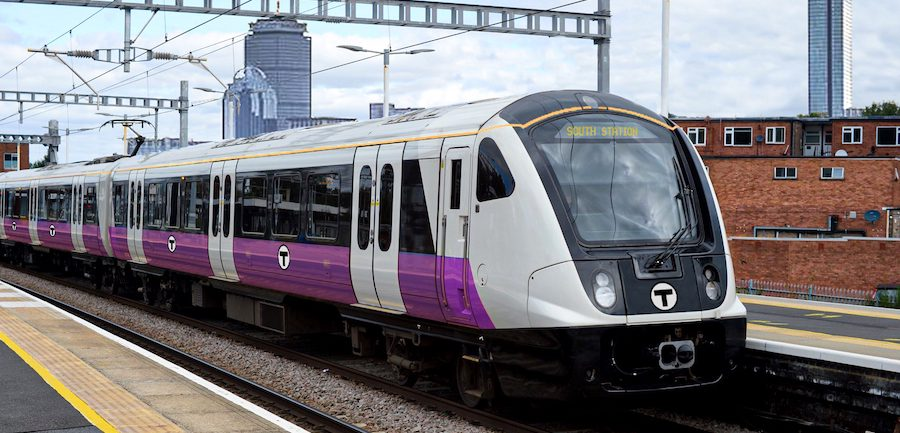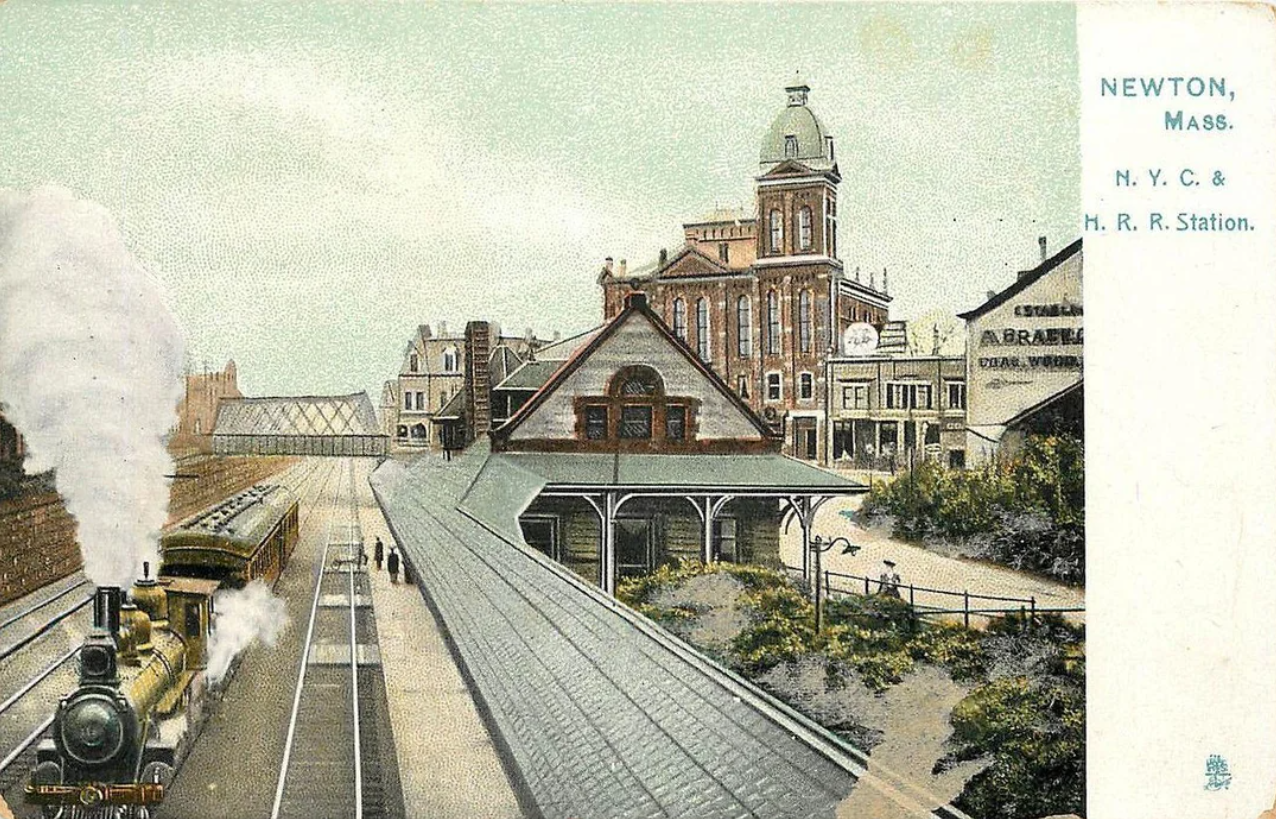Too Many Rules, No New Parking

Too Many Rules, No New Parking
Oct. 21, 2025
Good morning — Max Woolf here.
Very few issues matter to businesses more than where their workers live and how they get to work.
Today’s newsletter is a mix of both sides of that equation, — from where we park our cars and move our trains to how states are legislating to ensure workers can have homes to live in the communities they serve.
First up is one of our many third rails…parking.
Too Many Rules, No New Parking
Two things are true about parking in Newton: there isn’t enough parking in our village centers, and current city requirements neither create new parking nor support our businesses.
Commercial parking mandates — rules that require new or expanding businesses to add parking — exist in nearly every community. But they rarely lead to more parking. The reason is simple: there’s little to no available space left in our village centers.
As a result, business owners often spend months navigating a special-permit process until they receive an inevitable waiver from the City Council that changes nothing on the ground.
For example, a restaurant adding a few tables or employees could be forced to hire lawyers, submit plans, and attend multiple hearings — all to prove it can’t create parking it doesn’t physically have room for. It’s a frustrating, time-consuming loop that helps no one.
The problem extends beyond individual businesses. Potential tenants skip over opening in Newton altogether, even where there’s a vacant storefront, choosing communities with simpler permitting.
We believe business owners know how much parking they need and should not need a city ordinance to dictate them. That’s why the Chamber supports two reforms now before the City Council.
The first would extend the elimination of parking minimums — already in place in one-third of Newton’s village centers, thanks to the MBTA Communities Act — to the remaining two-thirds.
The second would simplify and standardize parking rules for businesses outside central districts, such as along Route 9.
These parking requirements are not solving our very real parking problems. All they do is burden already overworked business owners with more paperwork.
Despite this, the City Council is still divided on the issue — share your thoughts with them here.
Regional Rail could boost Watertown’s business access

Watertown’s latest transportation study underscores what many businesses already know: the city’s transit network doesn’t match its economic profile.
Although just 20 minutes from downtown Boston, Watertown remains entirely bus-dependent, lacking rapid rail service and standing as an outlier among its peers. As a result, the city sees lower transit use than similar communities such as Arlington, Medford, and even less dense neighbors like Belmont and Newton.
The report points out that despite this gap, Watertown is strategically positioned between two key commuter rail corridors—the Fitchburg Line to the north and the Worcester Line to the south—both targeted for upgrades under the MBTA’s Regional Rail Modernization Program.
It urges the city to leverage planned electrification and high-frequency improvements on these lines to explore the creation of a new Newton Corner rail station, already a key transfer hub for many of Watertown’s bus routes.
The study also proposes expanding the “Watertown Connector” shuttle—funded in part by the city’s biotech sector—to reach the Boston Landing commuter rail stop.
Taking advantage of upcoming regional rail investments, we can help employees reach their workplaces more efficiently while broadening the pool of talent available to Watertown businesses.
The full study will be presented to the city council tonight at 6 pm. View all 79 slides here.
But why’s there no longer a Newton Corner Station?
 |
The answer dates back to the construction of the Mass Pike, which permanently eliminated the Newton Corner rail station—and, to the detriment of us all, squeezed Newton’s remaining stations into a narrow corridor.
It also displaced countless businesses, but the chamber was there to help.
As part of this year’s 110th anniversary, I’ve been exploring our archives and came across a February 1961 chamber newsletter that captured that moment in time.
It noted that “the Chamber of Commerce, recognizing that many businesses will have to be relocated as a result of the new toll highway, has established a Business Relocation Committee.”
The chamber’s office became the central listing agency for available properties that could house displaced businesses. Listings “poured into the Chamber’s office” as residents and property owners across Newton mobilized to help.
We also worked with the city to support rezoning in Newton Corner, spurring redevelopment to replace the roughly $4.5 million in annual tax revenue the city lost when businesses were forced out.
Look out for more stories from our archives before the year ends.
State pushes back MassBay timeline
The state is pushing back its request for proposals (RFP) for the redevelopment of MassBay’s parking lot to better align with Wellesley’s planned “visioning study” for the site.
The Division of Capital Asset Management and Maintenance (DCAMM), which is managing the project for MassBay, had initially planned to issue the RFP just after the calendar year ended.
But MassBay President David Podell told us last week that the state will now likely wait until the town completes its study — which may not be finished until spring. It’s yet another sign that the state is willing to listen to the town’s input, even though it isn’t required to, as the project proceeds under a new state process that bypasses most local approvals.
Still, frustrations flared amongst Select Board members over the town’s own timeline.
At their meeting last week, Board member Beth Sullivan Woods said, “We don’t have to pack things into a timeline or a deadline,” explaining that they could move the visioning study at their own pace.
Member Collette Aufranc countered by explaining that the state “believes it’s in a housing emergency and is moving with purpose… We cannot drag our feet on this in any way.” She cautioned that the town must “move with equal purpose or risk being left behind.”
Tuesday Grab Bag
- Last night, Torrington Properties held its first community meeting on its proposed 40-unit mixed-use development at 33 Mount Auburn St in Watertown. This site is the second major project made possible by the Watertown Square Area Plan rezoning. View their presentation here.
- Chamber Members: Please take this short survey to help us shape our 2026 programs, advocacy, and connections. Complete it by Oct. 24 and you’ll be entered to win a $100 gift card to a chamber-member restaurant of your choice.
- Print is still alive! Fig City News published a “Special Print Edition” to serve as a voters' guide. Look for remaining copies at local shops.
- Starting Oct. 20, Newton Centre businesses can access enhanced Mass Save incentives to help finance refrigeration, kitchen equipment, and other energy-saving upgrades. However, these discounts will not last long. Learn more about the Main Streets program in last month’s webinar.
- Happening today (Tues. Oct. 21 at 12 pm), REACH’s free Corporate Lunch in Waltham offers employers tools to support survivors and create safer, trauma-informed workplaces.
California Goes Big on Housing
Last month, we told you about California’s proposed “MBTA Communities on steroids.”
Now it’s the law. Earlier this month, Gov. Gavin Newsom signed SB 79, a sweeping upzoning bill that will automatically legalize roughly 1.5 million new homes near rail stations and major bus routes.
It’s a striking contrast to Massachusetts, where many advocates are growing increasingly frustrated with our own version — the MBTA Communities Act — which they say has been bogged down by local pushback, circumvention, and a lack of scale.
The law “was not designed for and has not led to tens of thousands of new housing units, which would really make a dent in the region’s affordability crisis,” says Luc Shuster of Boston Indicators.
And despite our statewide goal of 222,000 new units, few communities have embraced the scale of reform needed to make a real dent in the housing crisis.
California’s approach may not be one we will copy — but it’s a reminder that other states are going much further than ours.
Another Green Line Closure
Starting Sat. Oct. 25, the MBTA will suspend Green Line service between Kenmore and Riverside through Halloween so crews can finish installing a new safety system — one meant to keep trains from colliding into each other and to keep operators from speeding.
Shuttle buses will run the entire route (except Beaconsfield), with express buses making all stops between Newton Highlands and Riverside, then running straight to Copley Square via the Pike.
It’s the second such shutdown this year. The last one, in September, was so rough that one commuter dubbed it “a trip to hell.” Here’s hoping this one feels a little less…hot.
And that’s what you need to know for today, unless you need to know why the Patriots' new coach, Mike Vrabel, always calls on the same reporter first
Public Policy and Government Affairs Manager
Charles River Regional Chamber
617-431-6101
I also value your feedback
